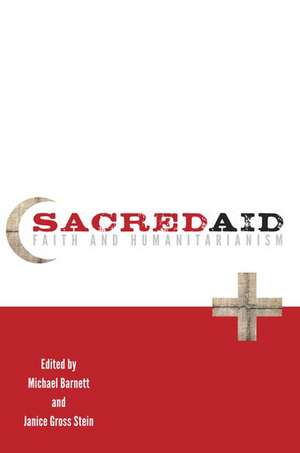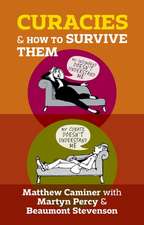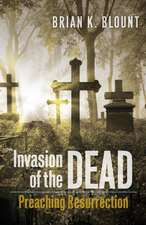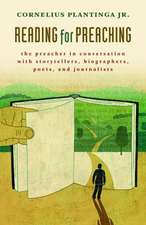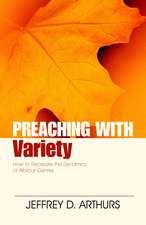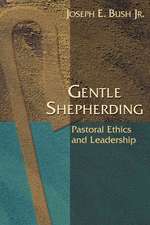Sacred Aid: Faith and Humanitarianism
Autor Michael Barnett, Janice Steinen Limba Engleză Paperback – 16 aug 2012
Preț: 298.25 lei
Preț vechi: 325.55 lei
-8% Nou
Puncte Express: 447
Preț estimativ în valută:
57.07€ • 59.75$ • 47.22£
57.07€ • 59.75$ • 47.22£
Carte tipărită la comandă
Livrare economică 26 martie-01 aprilie
Preluare comenzi: 021 569.72.76
Specificații
ISBN-13: 9780199916092
ISBN-10: 0199916098
Pagini: 272
Ilustrații: black & white illustrations
Dimensiuni: 155 x 231 x 20 mm
Greutate: 0.36 kg
Ediția:New.
Editura: Oxford University Press
Colecția OUP USA
Locul publicării:New York, United States
ISBN-10: 0199916098
Pagini: 272
Ilustrații: black & white illustrations
Dimensiuni: 155 x 231 x 20 mm
Greutate: 0.36 kg
Ediția:New.
Editura: Oxford University Press
Colecția OUP USA
Locul publicării:New York, United States
Recenzii
This marvelous book transgresses many boundaries. It examines foreign aid through the dual optics of sanctification and secularization. Since all humanitarian organizations are faith-based and since efficiency has become perhaps their highest calling, we are left without established categories to make sense of the world. Michael Barnett and Janice Stein force us to think anew. And they have assembled an impressive set of authors who provide the evidence that makes this book's far-reaching claims compelling. Sacred Aid opens entirely new vistas and compels us to reconsider fundamental political issues.
Everybody now recognizes that the 'faith-based' or 'faith-inspired' NGO is a crucial component of the global architecture of humanitarian relief and economic development. But almost nobody has thought critically about what exactly a 'faith-based' or 'faith-inspired' NGO really is, much less what distinguishes it from its 'secular' counterparts. That is, until now. In Sacred Aid, distinguished international relations scholars Michael Barnett and Janice Stein have brought their characteristic creativity and lucidity to this crucial though neglected thicket of conceptual and practical puzzles. In the process, among the many insights they and their contributors offer is that the boundary between 'sacred' and 'secular' humanitarianism is not nearly so neat as most of us have assumed.
This volume is a timely response to the challenge of how to think and write about the politics of humanitarianism after the critique of secularism. These essays take us deep inside a diverse series of projects, actors and associations that intervene in the lives of individuals and communities around the world in the name of convictions and commitments both secular and religious. Sacred Aid sets a high bar for a new research agenda on these influential actors and processes, and the political and religious worlds that they create.
Sacred Aid is a welcomed addition to the aid literature. While there is much research to be done, this book serves as a good first step to understand the changing nature of humanitarianism. The book is highly recommended for scholars, humanitarian workers, and policymakers interested in understanding the intersection of religion and humanitarian work. Sacred Aid is also a must read for anyone who teaches classes in economic development, non-profit studies, or foreign aid.
Everybody now recognizes that the 'faith-based' or 'faith-inspired' NGO is a crucial component of the global architecture of humanitarian relief and economic development. But almost nobody has thought critically about what exactly a 'faith-based' or 'faith-inspired' NGO really is, much less what distinguishes it from its 'secular' counterparts. That is, until now. In Sacred Aid, distinguished international relations scholars Michael Barnett and Janice Stein have brought their characteristic creativity and lucidity to this crucial though neglected thicket of conceptual and practical puzzles. In the process, among the many insights they and their contributors offer is that the boundary between 'sacred' and 'secular' humanitarianism is not nearly so neat as most of us have assumed.
This volume is a timely response to the challenge of how to think and write about the politics of humanitarianism after the critique of secularism. These essays take us deep inside a diverse series of projects, actors and associations that intervene in the lives of individuals and communities around the world in the name of convictions and commitments both secular and religious. Sacred Aid sets a high bar for a new research agenda on these influential actors and processes, and the political and religious worlds that they create.
Sacred Aid is a welcomed addition to the aid literature. While there is much research to be done, this book serves as a good first step to understand the changing nature of humanitarianism. The book is highly recommended for scholars, humanitarian workers, and policymakers interested in understanding the intersection of religion and humanitarian work. Sacred Aid is also a must read for anyone who teaches classes in economic development, non-profit studies, or foreign aid.
